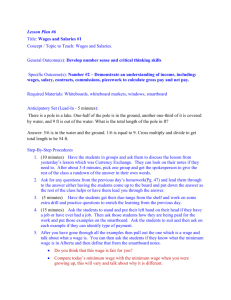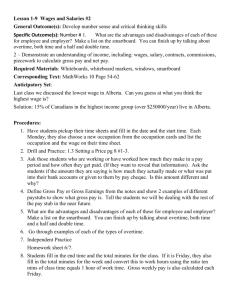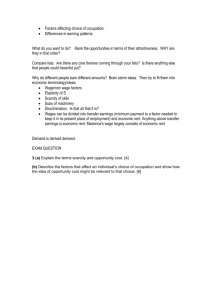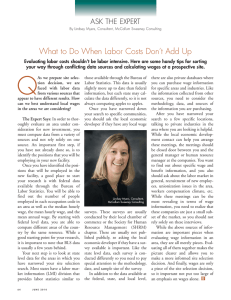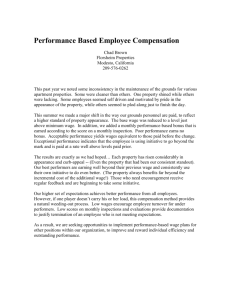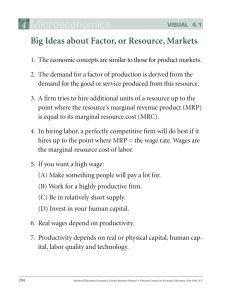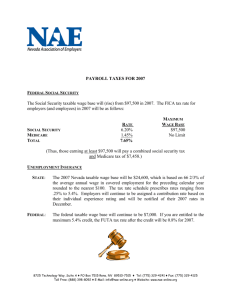Lesson 8 2012
advertisement
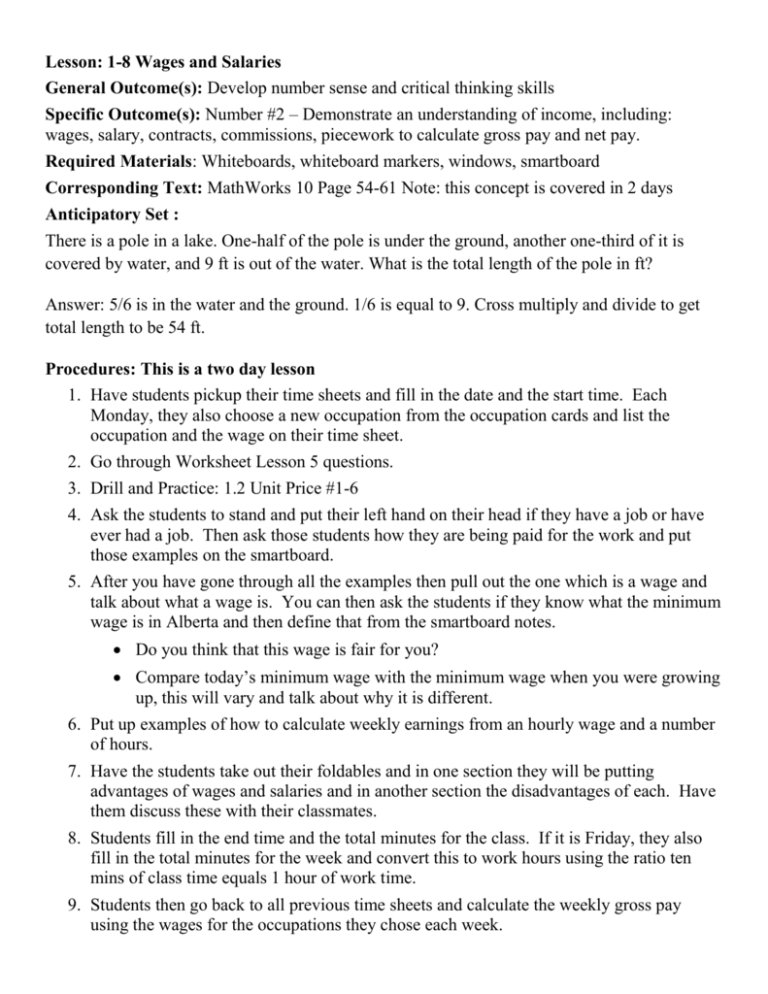
Lesson: 1-8 Wages and Salaries General Outcome(s): Develop number sense and critical thinking skills Specific Outcome(s): Number #2 – Demonstrate an understanding of income, including: wages, salary, contracts, commissions, piecework to calculate gross pay and net pay. Required Materials: Whiteboards, whiteboard markers, windows, smartboard Corresponding Text: MathWorks 10 Page 54-61 Note: this concept is covered in 2 days Anticipatory Set : There is a pole in a lake. One-half of the pole is under the ground, another one-third of it is covered by water, and 9 ft is out of the water. What is the total length of the pole in ft? Answer: 5/6 is in the water and the ground. 1/6 is equal to 9. Cross multiply and divide to get total length to be 54 ft. Procedures: This is a two day lesson 1. Have students pickup their time sheets and fill in the date and the start time. Each Monday, they also choose a new occupation from the occupation cards and list the occupation and the wage on their time sheet. 2. Go through Worksheet Lesson 5 questions. 3. Drill and Practice: 1.2 Unit Price #1-6 4. Ask the students to stand and put their left hand on their head if they have a job or have ever had a job. Then ask those students how they are being paid for the work and put those examples on the smartboard. 5. After you have gone through all the examples then pull out the one which is a wage and talk about what a wage is. You can then ask the students if they know what the minimum wage is in Alberta and then define that from the smartboard notes. Do you think that this wage is fair for you? Compare today’s minimum wage with the minimum wage when you were growing up, this will vary and talk about why it is different. 6. Put up examples of how to calculate weekly earnings from an hourly wage and a number of hours. 7. Have the students take out their foldables and in one section they will be putting advantages of wages and salaries and in another section the disadvantages of each. Have them discuss these with their classmates. 8. Students fill in the end time and the total minutes for the class. If it is Friday, they also fill in the total minutes for the week and convert this to work hours using the ratio ten mins of class time equals 1 hour of work time. 9. Students then go back to all previous time sheets and calculate the weekly gross pay using the wages for the occupations they chose each week.
